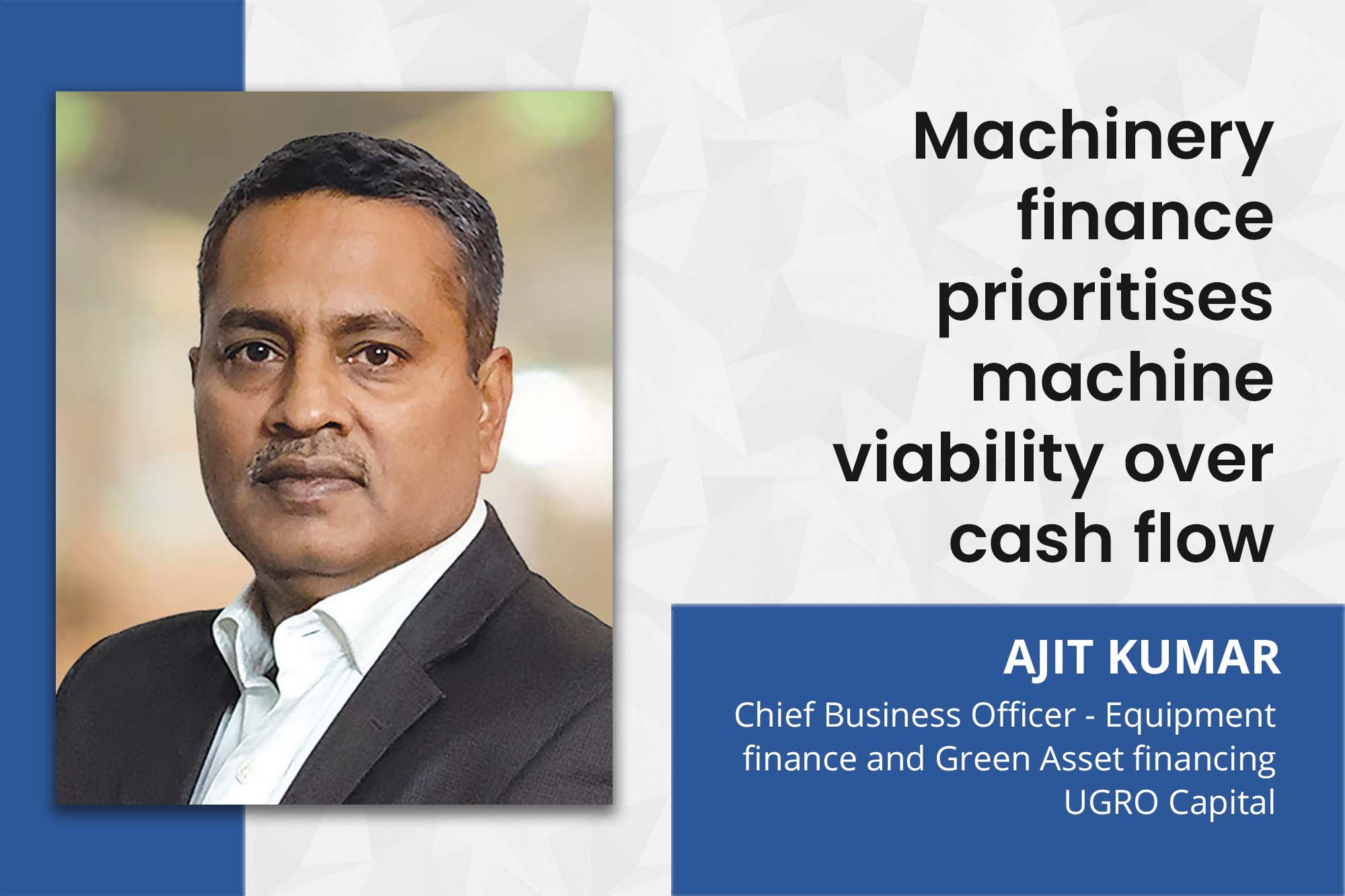Machinery finance prioritises machineviability over cash flow
By Staff Report October 8, 2024 7:28 pm IST
DataTech NBFCs are helping machinery finance by focusing on machine viability over traditional cash flow assessments. Their new approaches, with governmental support and flexible solutions, aim to enhance credit access and promote sustainable economic growth in the sector.
The change in the industry also brings evolution to the finance sector, and machinery finance has challenges looming for financiers aiming to align their business strategies with set policy lines. Established policies are best for customers with advantages, such as good banking relationships and an established setup with existing cash flows, a significant proportion of MSMEs. The lending segment often falls through the cracks since most of them do not fit within the regular lending policies. Micro and small enterprises sustain themselves based on their ability to use pre- and post-machine, and they thus find themselves unserved or underserved in the traditional financing model.
New-age data technology-focused NBFCs have begun drafting their entire lending policies for Machinery Finance purely on the psychological understanding of the end customer and the entrepreneur. Their business segment & size and promoter’s experience, clubbed with the machine’s ability to generate cash, provide simultaneous valuable inputs to these NBFCs while making credit decisions. With this understanding, a few lenders have adopted a new approach to credit underwriting, shifting from loans based on the customer’s ability to “loans based on machine viability.” Companies have also started implementing UYC (Understand Your Customer) along with the regulatory requirements of KYC (Know Your Customer). UYC provides a deeper and more comprehensive evaluation of customer needs and capabilities. UYC and viability approaches have yielded phenomenal results in enhancing company portfolio performances.
Enter DataTech NBFCs and their innovative approach to machinery finance.
Understanding the true potential of machines in generating monthly cash flows for customers is a critical factor in determining eligibility, LTV, and EMI. This approach blends objective-based credit assessments with a deep understanding of customer psychology and operational dynamics. A true DataTech NBFC bridges the gap between policy lines and ground realities.
For instance, consider CNC machines. Even when customers lack conventional cash flows, their expertise in machine operations and established market relationships can promise revenue streams. The essence of DataTech NBFCs’ approach is to focus on machines’ ability to generate cash rather than relying on customer ability.
Apart from redefining credit assessments, swift decision-making is also a must. NBFCs ensure that customers receive responses within minutes using technology, even if it means saying ‘No’. This approach prevents customers from lingering in uncertainty while promoting trust and efficiency.New-age NBFCs do not stop at rejection; they explore alternative solutions for customers. Flexibility is key to their success since they cover liquid cash collateral to understand the customer’s long-term vision.
DataTech NBFCs are advocating for increased governmental support to bolster the sector further. Subsidy schemes, particularly in green financing areas like rooftop solar and commercial electric vehicle (EV) financing, have demonstrated remarkable results, driving infrastructure growth and capacity expansion. Similar support to machinery finance can help with economic growth, employment, and innovation.
The current subsidy landscape presents a promising starting point, but there’s an incredible opportunity to expand its reach. While some schemes exist, they barely scratch the surface of the sector’s potential. A more robust subsidy framework with capital and interest rate subsidies is imperative to unlock the full potential of green and machinery finance.
The synergy between DataTech NBFCs and governmental support will unlock the true potential of green and machinery finance. An ability-driven credit model and conducive policies can propel the sector towards unprecedented growth, benefiting businesses, promoting sustainability, and bolstering the economy. This collaborative approach will lead users to meet financial goals and contribute significantly to environmental sustainability and economic resilience.
Cookie Consent
We use cookies to personalize your experience. By continuing to visit this website you agree to our Terms & Conditions, Privacy Policy and Cookie Policy.









